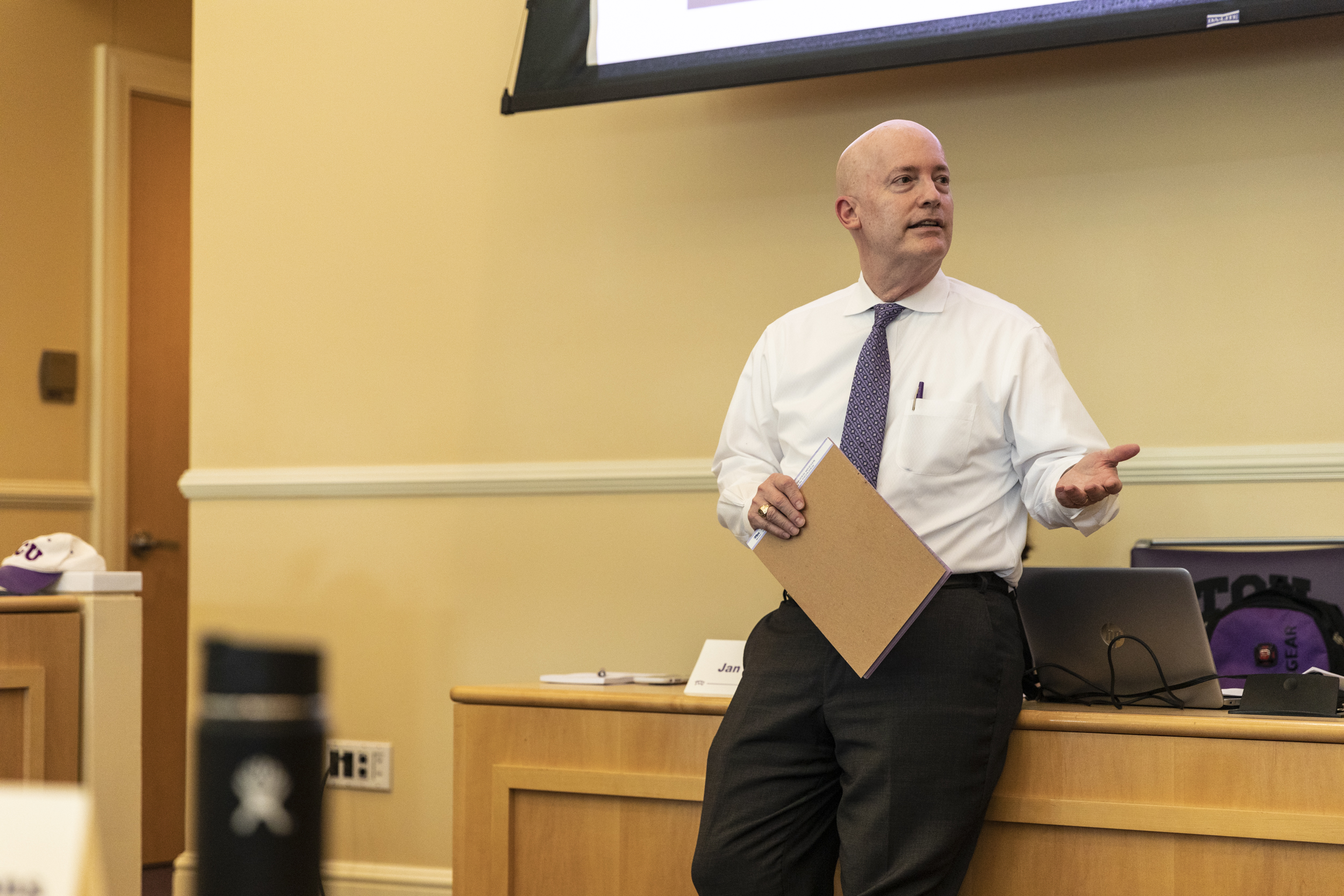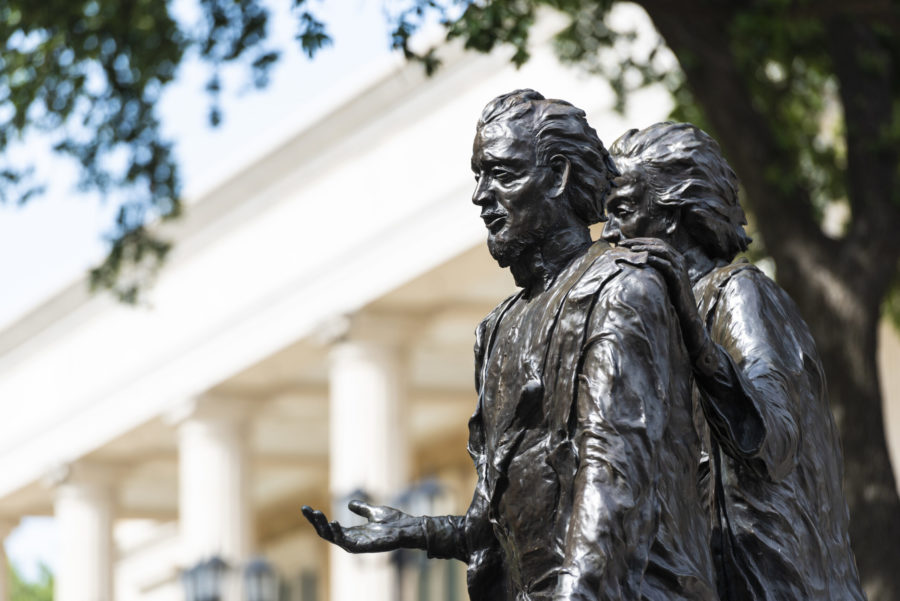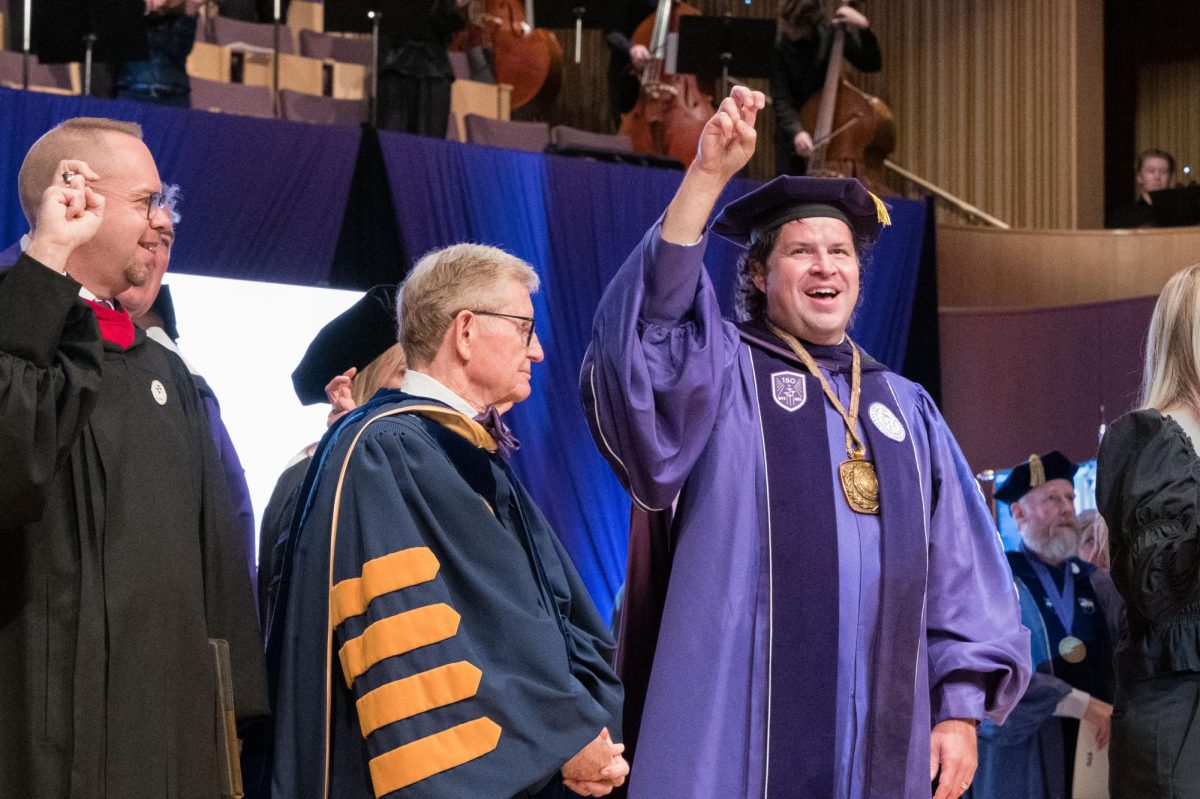
Faculty discontent with the TCU administration was made clear in an open letter published this week in the Fort Worth Star-Telegram.
The letter by Faculty Senate Chair Sean Atkinson cited a “growing sense of frustration and mistrust among the faculty/staff toward the administration” that has arisen over the last few months.
He blamed the situation on concerns about the health and safety guidelines for the upcoming fall semester, the lack of concrete action taken by the university to address racial injustice and the erosion of the system of shared governance between faculty and administration.
“Though health and safety for faculty and staff was and is perhaps the most pressing concern voiced, faculty and staff possess equal concern regarding the continuing disintegration of shared governance and the lack of concrete action on racial injustice.”
Sean Atkinson, Faculty Senate chair
The letter comes after suggestions of a vote of no confidence against the administration during a faculty senate meeting last month. The suggestion was tabled, but it indicated the level of frustration among faculty.
The letter builds on health and safety concerns that were voiced at the faculty senate meeting. The Zoom meeting maxed out with 300 faculty, who gathered to discuss their apprehension with Provost Teresa Dahlberg.
Faculty expressed concerns about social distancing within a classroom, questioned what to do if a student tests positive and asked if all necessary precautions were being taken to protect them from COVID-19.
Soon after, Dahlberg gave all faculty the option to teach online in the fall. As a result, more than half of all undergraduate courses are now slated to be conducted online.
Atkinson expressed gratitude for the remote option, but insisted TCU make the health and safety of those who must be on campus a top priority, “demonstrated by revealing detailed plans for testing and tracing on campus.”
Chancellor Victor Boschini responded to Atkinson in an email sent to all faculty and staff. Boschini wrote that more information on testing students will be available in the coming weeks and that the safety of all campus members is a top priority.

He asked for the continued patience of faculty and staff as the situation evolves, echoing similar comments made by Dahlberg.
During the faculty senate meeting with Dahlberg, one faculty member complained that is difficult to have continued patience and prepare adequately for the semester when the start is weeks away.
In his letter, Atkinson wrote that the frustrations around the lack of information on health and safety protocols reflects broader concerns with the system of shared governance between faculty, administration and the board of trustees.
Atkinson said the system “is on the verge of collapse” as unresponsiveness from the administration is becoming the norm toward faculty concerns.
“Resolutions from the Faculty Senate and the Staff Assembly most often receive no response—indeed, not even acknowledgement—from administration,” he wrote.
A previous open letter signed by more than 300 faculty and staff was sent to the administration in May and has yet to receive a response.
That letter focused on the “disconnect” between what TCU wants to be and reality. It was prompted by the administration’s decision to reduce retirement contributions without consulting faculty and staff.
Boschini has said that discussions on changes to the benefits were “extensive” throughout the last year. In May interview TCU 360, he disputed the idea that there was a lack of transparency.
“I have and will continue to do everything possible to make all of this transparent and crystal clear though, I have to admit it is a bit frustrating as I believe that is exactly what I have been doing,” he said in May.
In his letter, Atkinson argued that shared governance committees, the mechanism by which the system works, “have been either effectively disbanded or not given the information they need to meet their charges.”
He said the University Compensation Advisory Committee (UCAC) has been met with “silence, indifference, or hostility” when trying to work with the university to revise faculty benefits packages and understand what their target reductions are.
Atkinson asked for the administration to provide faculty and staff governance groups with whatever resources they need to do their work.
Finally, the open letter brought up faculty concerns about what the university is doing to address “current and long-standing racial inequalities on campus.”
While acknowledging the steps the university has made, Atkinson said racial injustice on campus has continued and needs to end.
“Numerous social media campaigns, bravely led by our BIPOC students, tell heart-wrenching stories of bias they have experienced on campus,” he said in the letter. “The university also currently faces several lawsuits alleging racial discrimination against both students and faculty.”
Over 200 faculty have now signed a letter supporting students of color and calling for a number of changes from the university, including hiring more BIPOC faculty and ending the practice of reducing faculty benefits.
Atkinson called for the university to take concrete actions to address these frustrations, like acknowledging the history of racial injustice at TCU.
“Acknowledge that our founders, Addison and Randolph Clark, were voluntary soldiers in the confederate army and begin a serious discussion about renaming the AddRan College of Liberal Arts,” he said.
In his reply, Boschini said he will be unveiling plans within the week for a new university initiative to ensure that TCU has a greater understanding of its history and can assure that it is a welcoming campus for all.
In their closings, both Boschini and Atkinson emphasized the need for faculty and the administration to work together to propel the university forward and create a better TCU.
“We need to rebuild shared governance, and true shared governance requires shared information,” Atkinson said. “We look forward to forging ahead, together, as we make TCU the best it can be.”










